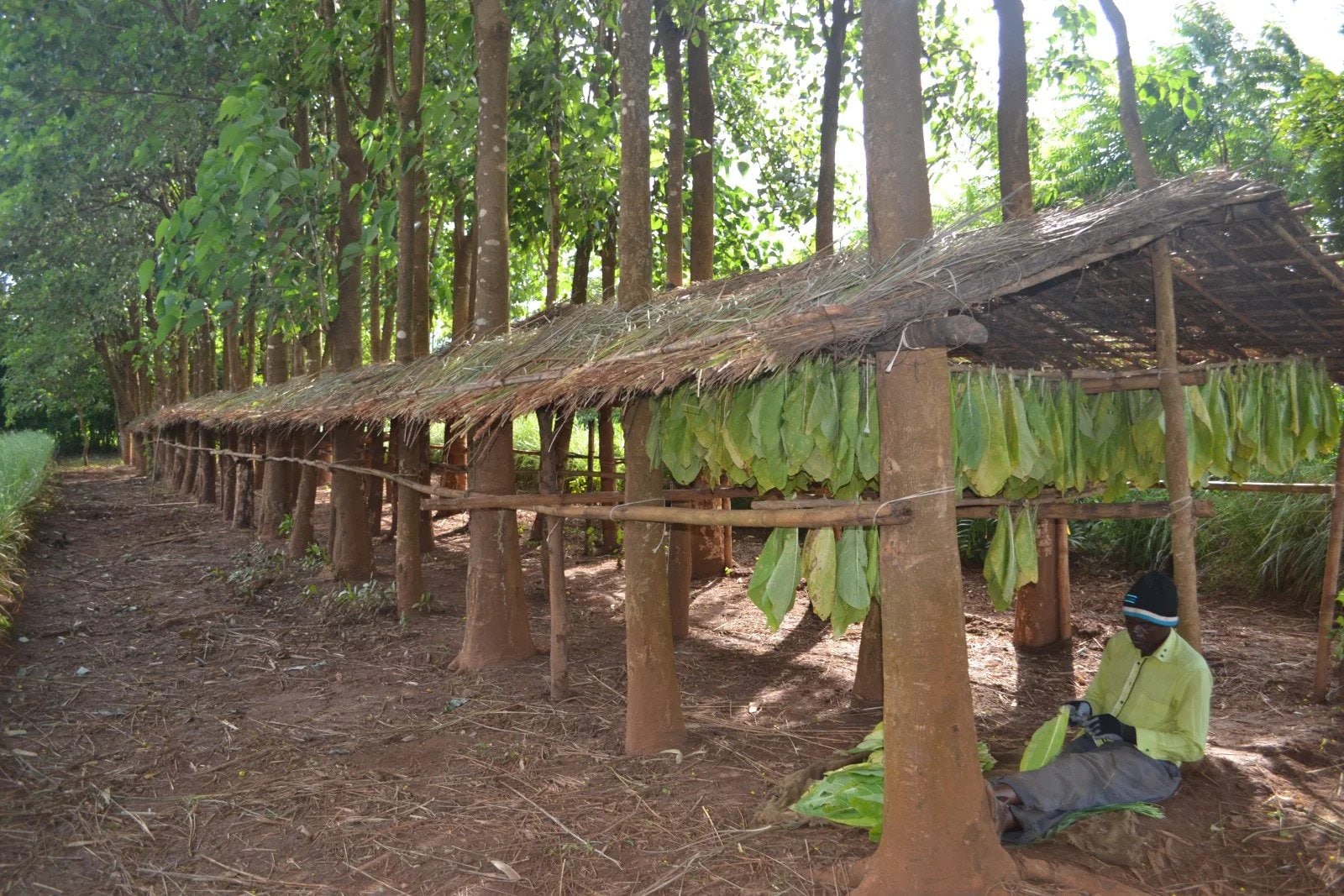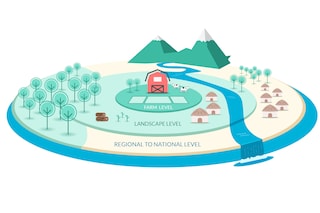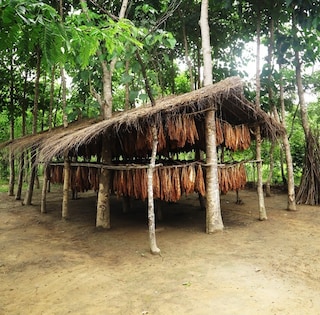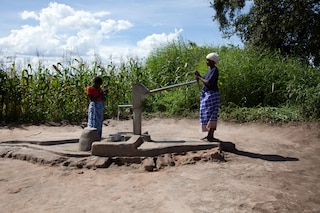On the ground in Central Malawi
Smallholder farmers produce the majority of agricultural output in Malawi. Tobacco is the country’s main cash crop and foreign-exchange earner.1
In 2020, PMI sourced Flue-Cured Virginia and Burley tobacco produced by local farms through its third-party suppliers. PMI sources from approximately 15,000 smallholder farmers in Malawi, and 9,400 of these employ additional workers. Flue-Cured Virginia tobacco is cured by indirect artificial heat delivered into an enclosed barn via flues, whereas Burley is air-cured in ventilated barns under natural atmospheric conditions.
Gazing across the whole landscape
In 2020, PMI Leaf continued to act at the landscape level, implementing holistic strategies and actions through its flagship programs in renewable curing, Good Agricultural Practices, and forest protection.
A holistic approach looks at the impact of cultivating tobacco not only on the surrounding natural environment but also on the farmer, the local community, and the environment at a landscape level. Forestry initiatives, such as restoration of degraded forestland and reforestation activities, mitigate climate change through carbon sequestration and can also provide a renewable fuel source for tobacco curing, if managed sustainably. In addition, forests provide shade and absorb rainwater, potentially preventing stormwater runoff and flooding, which can be detrimental to tobacco crops. Looking at projects at the landscape level can support a multitude of sustainability pillars. For instance, the benefits of protecting forests beyond planting trees can include erosion prevention, improved soil health, and increased water supplies for safe drinking.
By using a landscape-level lens when developing projects and programs, we draw on a core maxim of sustainability: the interconnection among the economy, society, and the environment. This approach allows us to work more closely with our farmers and suppliers and, where appropriate, in partnership with external stakeholders that support crop diversification. Such stakeholders support us to achieve key milestones related to collecting data, validating results, and collaborating on project plans to ensure they are feasible and impactful. We’re confident that this approach will help us realize the full potential of our investments and fits seamlessly within PMI’s business transformation. Read on to learn more about the implementation of our landscape approach strategy in Malawi.
Diagram: The Landscape Approach (below).
Preventing deforestation
As conveyed in our Zero Deforestation Manifesto published in 2019, preventing deforestation is a focal point of PMI’s global environmental sustainability strategy for generating co-benefits under an overarching nature-positive scheme. In 2020, the PMI Leaf team remained committed to a robust monitoring framework for calculating fuel sustainability, and we increased our use of spatial analytics to more accurately calculate the risks to primary, other natural, and managed forests. Thanks to these efforts, all Flue-Cured Virginia tobacco purchased by the company in 2020 posed no risk of deforesting old-growth forests, an achievement verified by a third-party audit conducted in all our Flue-Cured Virginia tobacco markets. In Malawi, the use of measured and verified criteria (e.g., traceability of the firewood, consumption efficiency) and stakeholder engagement at the local level enabled us to purchase tobacco cured exclusively with sustainable, verified firewood and wood briquettes.
Protecting forests and using sustainable curing fuels lower carbon emissions, contribute to supply chain optimization, and create sustainable family farming operations that can endure for generations.
Curing fuel
To cure Flue-Cured Virginia tobacco, the leaves must be hung in curing barns, with heated air to dry the leaves. Upon losing moisture, the leaves develop a distinct aroma that makes them unique. This process is completed in multiple markets across PMI’s tobacco supply chain; in Malawi, it takes place within barns primarily made of bricks. If barns are inefficient, they lose heat, and the curing process consumes more fuel. To combat the risks associated with wood-fuel use in Malawi, we worked with suppliers in 2020 to make our barns more efficient by expanding insulation capacity and heat convection.
Further, since wood is the primary fuel source for curing in Malawi, robust stewardship impedes overexploiting trees from local forests as cheap fuel sources. By protecting forests and using sustainable curing fuels, less carbon is released as emissions, helping us optimize our supply chain carbon footprint while creating lasting change within our farm communities. Our monitoring framework helped us to analyze sustainable and traceable fuel use, helping us set ambitious goals for curing.
In Malawi specifically, we have increased renewable and traceable wood fuel as a proportion of fuel used from 21 percent in 2014 to 100 percent in 2020 (up from 92 percent in 2019). This means that in 2020 alone, the available supply of sustainable firewood for curing reached 46,000 tons. Sustainable firewood comes from a managed forest that respects the principles of sustainable management (e.g., regarding correct harvesting practices, sustainable soil management and stakeholder engagement). This includes taking care not to extract from the managed production unit more biomass than the annual increment of the stand to ensure an appropriate growing stock for the whole rotation period.
By ensuring the sustainability of firewood for curing, we play an important role in preventing deforestation caused by mismanagement of forest resources; we estimate that roughly 1,500 hectares of forest were preserved in 2020. This has reduced carbon emissions related to curing tobacco in this market by 97 percent (versus 2010 baseline), as validated by external auditors. Likewise, by reducing fuel requirements through increased barn efficiency in 2020, we estimate that we saved approximately 140 hectares of forests from being harvested (vs. 2010 at constant tobacco volume to be cured). Our renewable fuel curing program exemplifies an environmental initiative with cascading benefits.
Live Burley barns
Burley tobacco also requires curing, but instead of being placed in heated barns, leaves are hung outside to dry naturally. In the past, farmers in Malawi hung Burley leaves from structures made of wood poles. These poles need to be replaced every few years, and farmers often sourced them from surrounding forests. To address this issue, we supported our suppliers’ programs to introduce “live barns” whose structure replaces wood poles with live trees that have unlimited life span and lessen the threat of deforestation. To support this conversion, suppliers in Malawi have distributed tree seedlings to farmers and trained them to cultivate the seedlings such that they grow into the structure of live barns in which to do future curing. In 2020, with management by our suppliers, the number of live barns planted increased by roughly 10 percent versus 2019, continuing a steady upward trend. At present, 509 live barns are operational, and others will reach the necessary size and height to be used in the next few years (see image below). Besides their more sustainable design, live barns sequester carbon dioxide and provide shade to farmers, which can be useful for household activities.
Next steps in forest management
In 2021, we will continue supporting farmers in implementing best practices. After having achieved full protection of primary forests in the PMI Leaf supply chain for all the Flue-Cured Virginia markets, we will increase our monitoring of secondary natural managed forests in line with our 2025 objective of zero net deforestation for managed forests throughout our supply chain. We will also thoroughly map our live barn projects in Malawi to better quantify their impact.
Water stewardship
In 2020, agricultural activities related to PMI tobacco purchasing in Malawi consumed over one million cubic meters of water, primarily for irrigation to grow seedlings in seedbeds and transplant them into fields. This water was drawn from rivers, reservoirs, and aquifers, which classifies it as “blue water.” In contrast, tobacco crops in Malawi are 100 percent rain-fed by “green water,” precipitation directly supplied to crops and natural systems. No additional water sources are needed during the field stage.
Given the critical importance of water to tobacco cultivation, the PMI Leaf team expanded its stewardship strategy in 2020 to define metrics and targets to optimize water use and conservation within our tobacco-growing areas. This strategy relies on the internationally recognized Volumetric Water Benefit Accounting approach to quantify the benefits of irrigation switches, enhanced recharge, and the protection of natural water bodies such as wetlands and rivers. Our target is to optimize 10 million cubic meters of water by 2030. To that end, we have continued to deploy our proprietary risk assessment methodology, which uses global and local data to better understand risks associated with the watersheds where we grow tobacco; this informs our mitigation actions and guides more impactful projects. In Malawi, the highlighted risks are seasonal variability, droughts, and soil erosion. With these risks in mind, we will evaluate potential projects to understand their impact on water resources and any additional benefits they may have, such as enhancing access to water, sanitation, and hygiene or increasing farmer income. Our end goal is to involve rural communities across our supply chain in our water, sanitation, and hygiene activities, with an eye to mitigating risks identified in our previous assessments.
Access to water, sanitation, and hygiene is critical to the health and well-being of our farmers and their families. It is concerning, therefore, that baseline assessments in Malawi have shown that many people lack access to safe drinking water and an adequate sanitation and hygiene infrastructure. To remediate the situation, we drilled 47 hand-pump boreholes in Malawi in 2020 (in addition to the 43 drilled in 2019), each one benefiting around 500 community members. In 2021, we will drill more boreholes and rehabilitate unused ones. Thus, our water stewardship benefits not only the natural environment but also the lives of our farmers, their families, and community members.
Biodiversity, a common thread in all our actions
Agriculture would not exist on its current scale without biodiversity. Our business fares only as well as the ecosystem that sustains it; hence, we have mapped our tobacco operations around the world against specific measures such as biodiversity richness, forest cover loss/gain, and overlaps with natural protected areas. For Malawi, mapping efforts in collaboration with our suppliers resulted in five polygons covering the areas where tobacco used by PMI is grown.
Historically, our suppliers have shared spatial data about their growing areas. In 2020, we asked them to consider also the nearby natural ecosystems on which tobacco cultivation may have an impact by defining a radius around each farm to extend our analysis of local environmental drivers and impacts. Leveraging the results of our on-farm Good Agricultural Practices and forest protection program, we plan to collaborate on designing and implementing impactful programs to extend our positive impact beyond the acreage used for tobacco cultivation.
In 2021, we’ll further hone our biodiversity performance indicators and targets and communicate progress. When setting biodiversity targets, we strive to protect intact ecosystems, restore degraded ecosystems, and sustainably manage the remainder. Drawing on the results of our spatial analysis, we will define how many hectares of land to commit to protecting, restoring, and managing and determine where our actions will be most beneficial. Our goal is to develop a robust biodiversity strategy that will help landscapes such as those in Malawi to thrive.
For more information on how PMI ensures workers a minimum wage, safe working conditions, and adequate accommodation, as well as our efforts related to water, sanitation, and hygiene, please refer to the “Socioeconomic well-being of tobacco farmers” section of our Integrated Report.
Other case studies
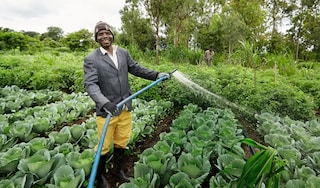
Working towards crop diversification
Read more
Early adopter market Japan
Read more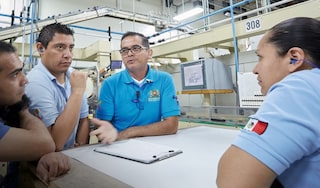
Human rights due diligence in Mexico

